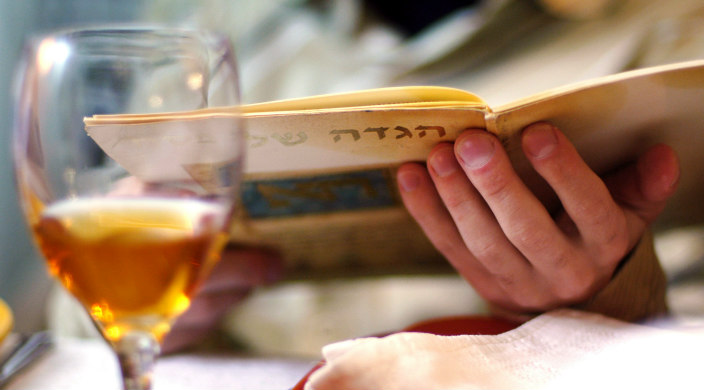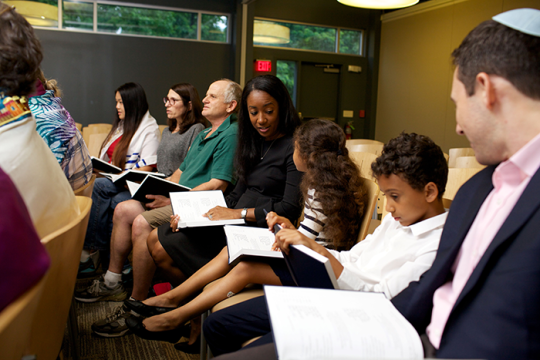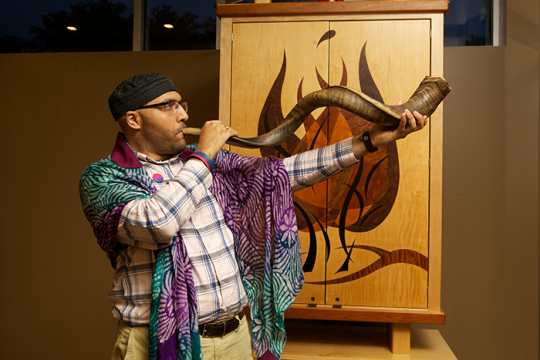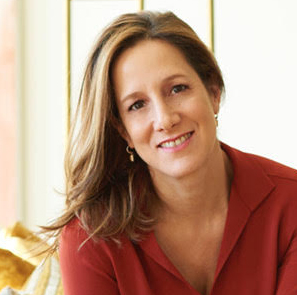
Each year, after my childhood family seders at Uncle Danny’s (first night) and Aunt Betty’s (second night), I looked forward to a whole new world the third night, in New York City’s SoHo or Chelsea. There was the improvised “table” – patterned fabrics spread on the floor of someone’s loft, the pile of pillows we all brought to sit on in a huge circle, and the myriad platters each guest contributed for the potluck meal.
The Feminist Seder was a highlight of my youth in the 1970s and ’80s. I started attending these innovative, women-only observances at age 12, but hadn’t been to one since college. So when my mother invited me along two years ago, I accepted.
I capitalize Feminist Seder because although there are now hundreds of them, this was the original – the revolutionary ritual started in 1976 by the late Esther Broner (an esteemed academic and spiritual presence) in collaboration with a group of women, including my mom, Letty Cottin Pogrebin.
“The Seder Sisters,” as they called themselves, reimagined a ritual that had largely sidelined women in the Bible, Haggadah, and the seder ceremony itself; traditionally, while men would do the praying, reciting, recounting, and discussing, women would do the cooking, serving, clearing, and cleaning.
I remember being soothed by Esther Broner’s ethereal voice, being riveted by her poetic asides, pushed by her incisive questions. I felt privileged to be a “seder daughter,” sitting among leaders of the women’s movement, such as Gloria Steinem and Bella Abzug.
I listened attentively to the teachings of writer Phyllis Chesler (usually in a caftan), artists Bea Kreloff and Edith Isaac-Rose (the first lesbians in my life), filmmaker Lilly Rivlin, who directed the 2013 documentary film Esther Broner: A Weave of Women, which chronicles The Feminist Passover.
The 40th Feminist Seder was led collaboratively by a small group of Esther Broner’s devoted friends.
As had been the custom for the past 40 years, each woman introduced herself by her matrilineage. I invoked, for the first time, the name of my teenage daughter: “I am Abigail, mother of Molly, daughter of Letty, daughter of Ceil, daughter of Jenny.”
Lilly Rivlin asked us to “bring an invisible guest” to the table — a woman, living or dead, whom we wish could be present. Nahama Broner, Esther’s daughter and a psychology professor, “brought” all the unnamed women of the Exodus story, the Israelite women who danced on the shores of the Red Sea, and her own daughter, Alexandra, who was in Kenya doing development work.
Canadian writer Michelle Landsberg “brought” Ernestine Rose, a little-known 19th-century abolitionist and women’s rights pioneer.
My mother Letty “brought” my late Aunt Betty, who warmed to the women’s movement after initially resisting it, and who eagerly participated in the Feminist Seder for years until she died in 2013.
Our evening’s host, Barbara Kane, “brought” Sabina Spielrein, a patient of Carl Jung’s who became one of the very first female psychoanalysts. She was killed by a Nazi death squad.
After the blessing over the candles, we were asked to bless the woman sitting to our right. My mother blessed me – a little over-emotionally, but I could see it was sentimental for her to have one of her daughters back at this ceremony.
We then took turns reading The Ten Plagues According to Women, written by my mother back in 2010.
Here’s her take on the fourth plague, beasts:
“Our beasts don’t always prowl in public; they attack in private, in the caves of our lives – on dark streets, in parked cars, in offices after hours, in shuttered bedrooms. Our beasts are men who abuse and violate women, physically, emotionally, and sexually. Men who rape and say “she wanted it.” Or, “She wore a short skirt.” Men who attack their wives and children behind closed doors, some with mezuzot on the doorposts. For years we were told Jewish men don’t beat or rape or commit incest. But they do. A plague on them.”
This year, with the explosion of the #MeToo movement, our modern plagues – such as Mom’s hidden beasts – could pack a renewed punch at feminist seders everywhere. Who could have known, eight years ago, that so many who prowled in private would be outed, and so many women delivered from the silent shame they thought was the only way?
My night at The Feminist Seder ended with my favorite rite, the so-called “Sacred Schmatta” (rag, in Yiddish) a chain of gauzy fabric, one piece tied crudely to the next. We wrapped it around ourselves like one continuous tallit (prayer shawl) and sang Michelle Landsberg’s version of “Dayenu,” including the verse:
If only Torah told the story
Of the women, gave them glory
If our mothers were remembered
Dayenu.
Related Posts

18 Jewish Reads for Tweens and Young Adults

Let Kids Read Books During High Holiday Services

